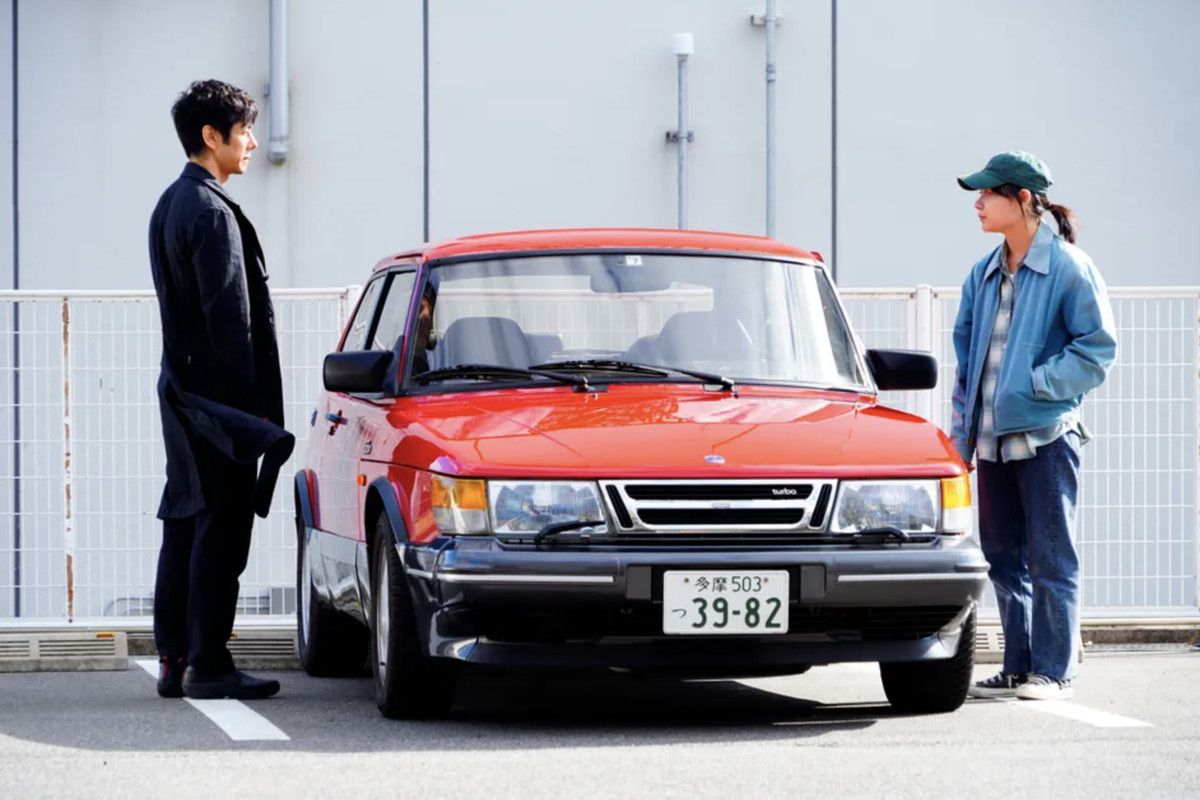Haruki Murakami is a notoriously difficult author to adapt into film. While there have been some successes, notably 2018's Burning, relatively few films have been made out of his work for a writer of his stature. His meandering stories and dreamlike prose are challenging to reproduce on-screen. Murakami is a contemplative and introspective writer, which are attributes that are often used when trying to describe novels, but rarely film.
However, the new movie from Ryusuke Hamaguchi, Drive My Car, truly conveys the experience of reading Murakami's work. It manages to capture the singular tone of Murakami's writing while also telling a compelling story about grief.
A favorite for this year's Best Picture and Best International Film Oscars, Drive My Car has been dazzling critics and audiences alike. Not only was it nominated for Best Picture, but it is also somehow the first Japanese film to ever do so. While this shows how resistant American audiences can be to foreign films, it ultimately speaks to the quality of the film. Despite being close to three hours long, the film rarely drags and stays entertaining throughout. This is accomplished while also being an adaptation of an author whose work is often intentionally long-winded and aimless.
With the film now widely available on HBO Max, let's explore how the film imparts the singular quality of Haruki Murakami's writing through its pacing, characterization, and plot.
Embracing the Tropes
Murakami is an innovative and singular writer, but he's not one to reinvent the wheel with each of his stories. That's not to say that he does the same thing in each piece, rather that he somewhat obsessively explores the same ideas and themes from different angles again and again. He clearly has preoccupations with certain concepts, as shown by the reoccurring tropes within his work. This is exemplified by the existence of Incidental Comic's "Murakami Bingo," which gently pokes fun at the author in the way only a fan can. While Drive My Car doesn't get bingo on the card, it checks plenty of the boxes.
By embracing some of these Murakami tropes, Ryusuke Hamaguchi demonstrates his deep knowledge of the source material in a way that allows him to reference the more extensive Murakami oeuvre without it feeling contrived. Drive My Car contains elements of urban ennui, stories-within-stories, and record players to evoke the spirit of Murakami's work, not as cheap allusions for fans of the author. In other words, Drive My Car works as a film whether you've read Murakami or not, but if you have read his work, there is pleasure in experiencing familiar emotions through a different medium.
While the film judiciously employs some of Murakami's tropes, it also knows what to leave out. The level of magical realism varies from book to book, but Drive My Car wisely avoids it overall. Magical realism is hard to capture in film, especially while staying out of the experimental realm. Adapting something like The Wind-Up Bird Chronicle into a feature film would be difficult for various reasons. Still, many of the hardships would stem from its fantastical elements and surreal journeys into other worlds. By adapting this story in the method he did, Hamaguchi avoids these potential pitfalls.
Slow and Steady
Three hours is a lengthy runtime for any movie, in particular for an understated drama, but Drive My Car manages to justify its length. If the film were significantly shorter, it wouldn't capture the slow, dreamlike pacing of Murakami's stories, which unfold slowly over many pages. There's a reason many of his novels, such as 1Q84, are notorious for their length. The short story the movie is based on is obviously much briefer, but the deliberate plotting is consistent throughout Murakami's work.
The movie stays interesting while moving so slowly by subtly creating mysteries that you might not even be aware of but want to know the answers to. Without going into spoilers, there are plenty of moments where characters act in a way that might seem counterintuitive at the time but are given context later. Many times in Murakami's pieces, things happen for reasons that are unclear to the reader. Sometimes he reveals the motivations behind the actions, and sometimes he doesn't, but the mystery keeps you invested. Drive My Car doesn't leave any major loose threads hanging by the end but takes its time to reveal backstories and justifications. This gradual trickle of information keeps the audience hooked throughout the unhurried and often digressive story.
Future Adaptations
Haruki Murakami is one of the greatest living writers. While it's a shame that more of his material hasn't been translated into film, maybe it's for the best. Adapting his idiosyncratic work takes incredible amounts of skill, effort, and time. Without that, the power of the material is lost. Everyone's familiar with the overused aphorism "the book was better," but that's not always true.
Drive My Car (and Burning) show that excellent films can be crafted out of Murakami's writing by giving the material to equally talented filmmakers. So while the rights to his novels and stories shouldn't be handed out willy-nilly, hopefully, there are more equally impressive Murakami adaptations coming our way.



